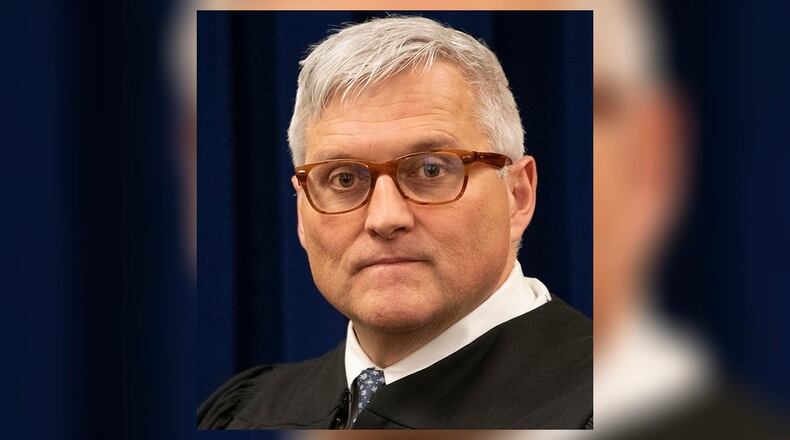In a Tuesday letter to members of the Ohio Republican Party’s central committee, a collection of elected insiders who make endorsements, Lewis cited his concerns that a contested endorsement could divide the party.
The committee had been getting set to meet next week to consider endorsing in the race.
He described himself as declining the party’s endorsement, although it’s unclear whether Lewis had the needed votes. Getting an endorsement would require votes from 44 of the committee’s 66 members — a high bar, and more than what’s needed for an incumbent Republican to be endorsed for reelection.
“My reasoning is rooted not in personal hesitation, but rather in a deep concern for the unity of our Party as we approach the difficult and consequential midterm election cycle in 2026,” wrote Lewis, adding he still plans to seek the GOP nomination for the race.
Lewis facing internal questions over tax issues
Lewis’ letter comes as he’s faced controversy among party insiders over tax issues he experienced a decade ago while law director for Xenia. The backlash intensified after a special Ohio Republican Party committee voted on Aug. 16 to recommend Lewis for an endorsement in the May 2026 primary election.
While the vote was only preliminary, it was definitive enough to drive a major candidate out of the race: current Supreme Court Justice Pat Fischer, who had been attempting to run for a different seat on the court.
Whoever wins the primary election in May likely will go on in November to face Democratic Justice Jennifer Brunner, who’s yet to draw a Democratic challenger.
More about the tax controversy
Lewis has served on the 2nd District Court of Appeals since late 2021, when Gov. Mike DeWine appointed him to the seat to fill a vacancy.
Before that, Lewis spent years as a city official in Xenia, including as Xenia’s law director from 2001 to 2016
While serving as law director in 2014, the city’s finance director filed a criminal charge against Lewis for a failure to pay taxes. A July 2014 article from the Dayton Daily News describes the issue as relating to “self employment income” from 2008 to 2013.
At the time, Lewis, who worked for Xenia part time, also performed legal work for other area communities, an arrangement that’s not uncommon in local government.
“There’s no question I made an error,” Lewis told the newspaper at the time. “It has all been taken care of. It’s been resolved. I thought I had longer to take care of it and resolve it.”
Lewis paid the disputed taxes, and a court ended up dismissing the charge in September 2014, according to the Dayton Daily News. The newspaper said records it had obtained didn’t indicate how much money Lewis had owed.
But Lewis’ campaign told Signal the disputed amount was $2,296.28. Lewis paid a penalty as part of his legal settlement.
Lewis in a statement on Tuesday called the situation a “misunderstanding” over his tax obligations. He also described the legal result as exonerating him of wrongdoing.
“At the time, rather than litigate the issue, I believed that it was in the best interest of the city and its residents to settle the case. By doing so I avoided accumulating costly fees for the city and ultimately the taxpayers of the community in which I have lived my entire life and have dedicated so much time to serving,” Lewis said.
Signal Ohio has contacted two officials quoted in the Dayton Daily News stories. One, a former city councilman, said in a brief phone interview he didn’t recall the situation.
Signal Statewide is a nonprofit news organization covering government, education, health, economy and public safety.
About the Author
